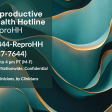How women felt about telehealth pregnancy care during the COVID pandemic
February 15, 2023
New findings from the COVID-19 Impacts on Reproduction in the United States (CIRUS) Study show what patients thought of the quality of their telehealth visits and what kind of care they want in the future.
Understanding Black women’s pregnancy discrimination experiences
January 24, 2023
Pregnancy discrimination is common, and complaints have increased—particularly among Black women and women of color.
Nairobi meeting launches action plan for equitable global health partnerships
January 20, 2023
A group of leaders at the Bixby Center for Global Reproductive Health and the IGHS launched an effort to collaborate with global health partners to reimagine the way they work together.
Shamba Maisha farming program improved food security and mental health for people living with HIV
December 19, 2022
This study examines the effects of a multisectoral agriculture and livelihood intervention on HIV viral suppression and nutritional, mental health, and behavioral outcomes among HIV-positive adults prescribed antiretroviral therapy (ART).
IGHS and Bixby Center researchers head to Kenya to develop more equitable global partnerships
November 14, 2022
IGHS and UCSF's Bixby Center set out on a project with no established course or proven methodology, but rather a commitment to be informed by and in partnership with global colleagues.
Meet Alison Comfort, researcher exploring the stories behind the data
November 14, 2022
Health economist Alison Comfort, PhD, has been drawn to math and economics her whole life. The unique power of her work comes in recognizing the real-life experiences behind the data.
Sex ed programs that share information about clinical services reduce perceived barriers to care
November 04, 2022
A new study from the Institute for Health Policy Studies examines whether sex ed programs that provide information about local services can help reduce perceived barriers to care.
San Francisco shows paid family leave should be designed with an equity approach
October 26, 2022
New research using birth certificates and hospital records investigated whether the paid leave ordinance was associated with improved birth outcomes.
One in three people would consider managing their own abortion if they couldn't get to a clinic
October 04, 2022
A new ANSIRH study confirms that as many as one in three people indicate that they would consider doing something to end their pregnancy on their own if unable to obtain care at a facility.
Women’s social networks influence decisions around prenatal care
September 23, 2022
A new study led by Alison Comfort, PhD, together with colleagues in Bixby and at Makerere University, explores reliance on social ties for information about when to start prenatal care.
